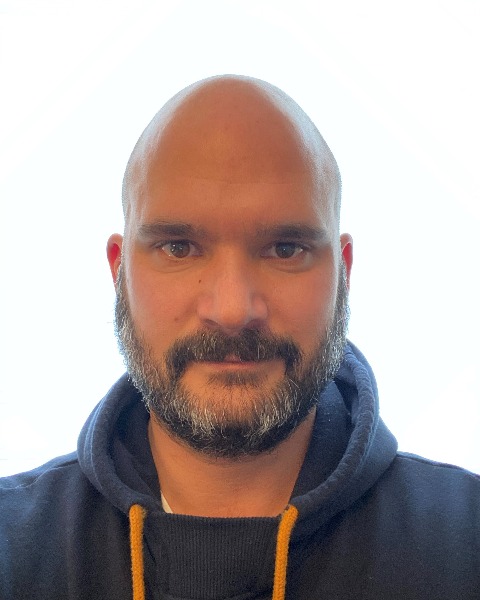Disease Epidemiology/Clinical Course
Session: Poster Session A
(186) FOUNTAIN: a modular research platform for Integrated Real-World Evidence Generation
Friday, August 25, 2023
8:00 AM - 6:00 PM ADT
Location: Convention Hall
Publication Number: 521

Nikolaus G. Oberprieler, PhD
Senior Epidemiologist
Bayer Pharmaceuticals, Norway
Presenting Author(s)
Background: Real-world evidence (RWE) plays a key role in regulatory and healthcare decision making, but its utility in decision-making and clinical guidelines is limited by a lack of reproducibility and the fragmentated nature of the generated evidence. While some heterogeneity in real-word data (e.g., healthcare systems, patient populations) is expected and should be described, heterogeneity resulting from bias and inconsistent application of methodologies across studies should be minimized through harmonization.
Objectives: Combining evidence generation approaches and harmonizing methodologies, the FOUNTAIN platform aims to address two main objectives in patients with chronic kidney disease (CKD) and type 2 diabetes (T2D): i) describe utilization of different treatment options and event rates of clinical and laboratory outcomes, and ii) assess the real-world effectiveness and safety of finerenone.
Methods: Guided by an expert advisory committee of multidisciplinary experts and patient representatives, the FOUNTAIN platform employs three strategies to improve and harmonize RWE generation:
1) establish and maintain long-term collaborations with pharmacoepidemiology research partners (RP) and multidisciplinary experts,
2) combine different approaches for RWE generation: i) research collaborations where RPs lead the execution of a global protocol in their native data source, and ii) execution of a common protocol in multiple data sources through federated data networks mapped to the same common data model (CDM), and
3) ensure harmonization of medical definitions, overall methodology and curation of reproducible artifacts across all studies conducted within FOUNTAIN.
Results: Currently, the FOUNTAIN platform includes 9 RP collaborations and 5 CDM-mapped data sources from 7 countries (US, CN, JP, UK, NL, ES, DK). These databases and RPs were selected after a feasibility evaluation based on a fit-for-purpose framework (quality of the data, relevance of the data source for the research question, and data access). Six multi-country, multi-database, cohort studies are currently ongoing to describe drug utilization (FINEGUST, TREADS), comorbidity profiles (TRACK, BORIS), healthcare resource use (FIRST-1, BORIS), and treatment effectiveness and safety (FIRST-1, FIRST-2.0), in different patient populations with CKD and T2D or heart failure.
Conclusions: The FOUNTAIN platform aims to harmonize RWE generation across different RPs and data sources, and build long-term research partnerships. The goal of FOUNTAIN is to produce RWE that can support decision-making among health authorities and inform clinical practice to improve the care of patients with CKD and T2D.
Objectives: Combining evidence generation approaches and harmonizing methodologies, the FOUNTAIN platform aims to address two main objectives in patients with chronic kidney disease (CKD) and type 2 diabetes (T2D): i) describe utilization of different treatment options and event rates of clinical and laboratory outcomes, and ii) assess the real-world effectiveness and safety of finerenone.
Methods: Guided by an expert advisory committee of multidisciplinary experts and patient representatives, the FOUNTAIN platform employs three strategies to improve and harmonize RWE generation:
1) establish and maintain long-term collaborations with pharmacoepidemiology research partners (RP) and multidisciplinary experts,
2) combine different approaches for RWE generation: i) research collaborations where RPs lead the execution of a global protocol in their native data source, and ii) execution of a common protocol in multiple data sources through federated data networks mapped to the same common data model (CDM), and
3) ensure harmonization of medical definitions, overall methodology and curation of reproducible artifacts across all studies conducted within FOUNTAIN.
Results: Currently, the FOUNTAIN platform includes 9 RP collaborations and 5 CDM-mapped data sources from 7 countries (US, CN, JP, UK, NL, ES, DK). These databases and RPs were selected after a feasibility evaluation based on a fit-for-purpose framework (quality of the data, relevance of the data source for the research question, and data access). Six multi-country, multi-database, cohort studies are currently ongoing to describe drug utilization (FINEGUST, TREADS), comorbidity profiles (TRACK, BORIS), healthcare resource use (FIRST-1, BORIS), and treatment effectiveness and safety (FIRST-1, FIRST-2.0), in different patient populations with CKD and T2D or heart failure.
Conclusions: The FOUNTAIN platform aims to harmonize RWE generation across different RPs and data sources, and build long-term research partnerships. The goal of FOUNTAIN is to produce RWE that can support decision-making among health authorities and inform clinical practice to improve the care of patients with CKD and T2D.

